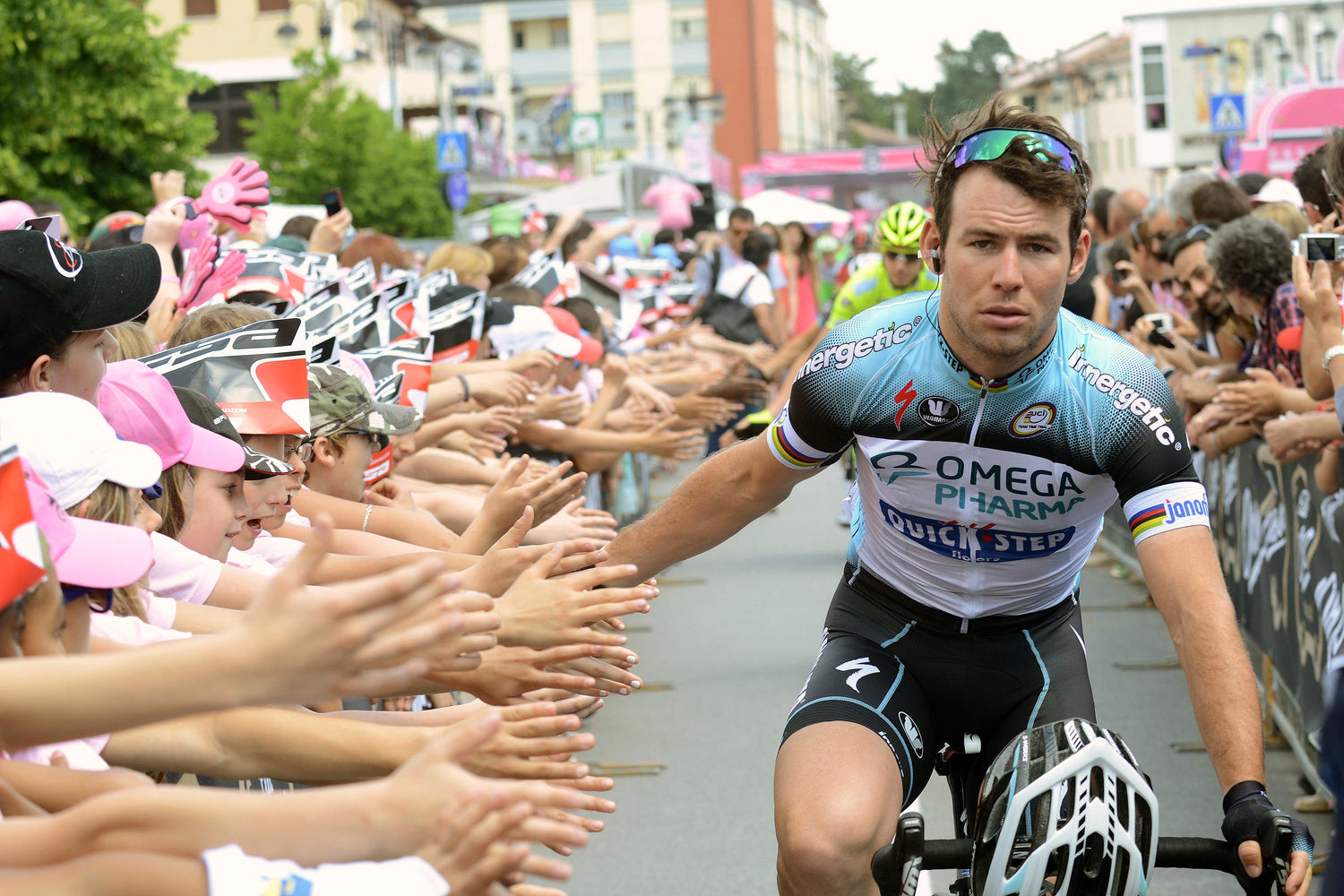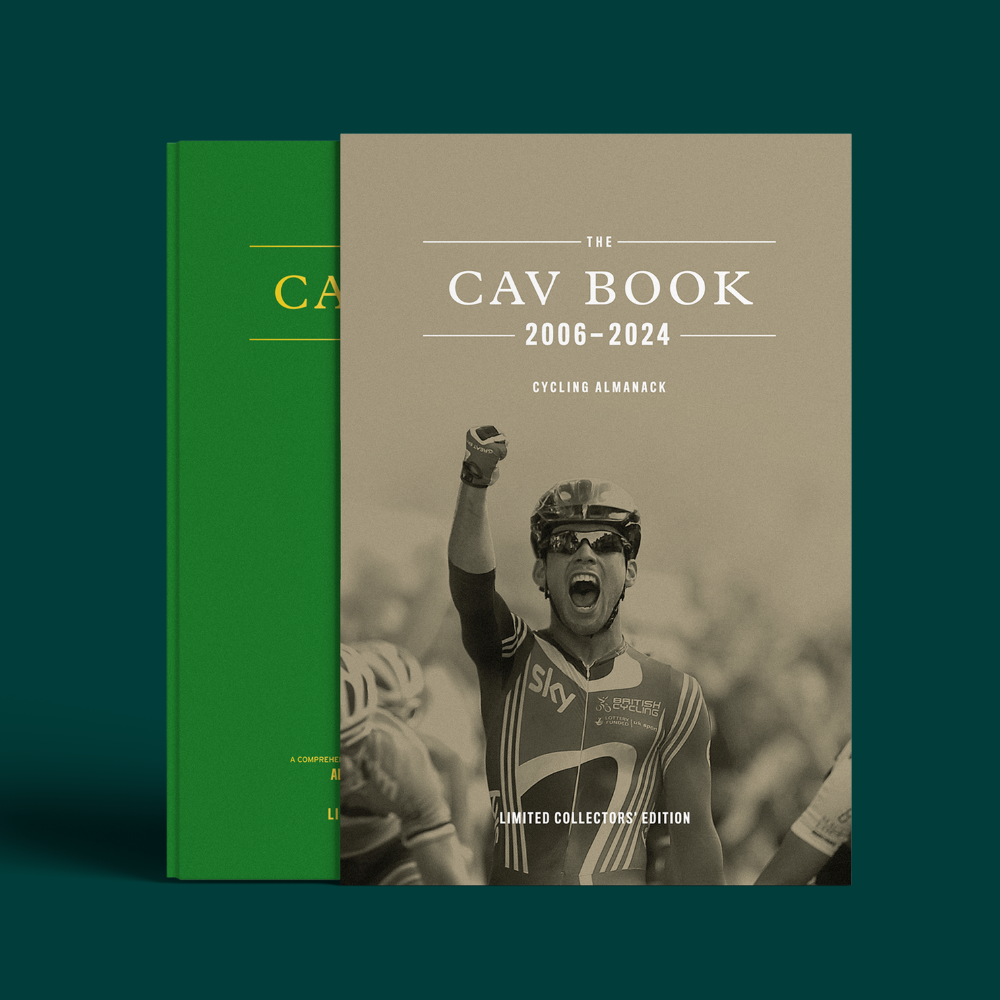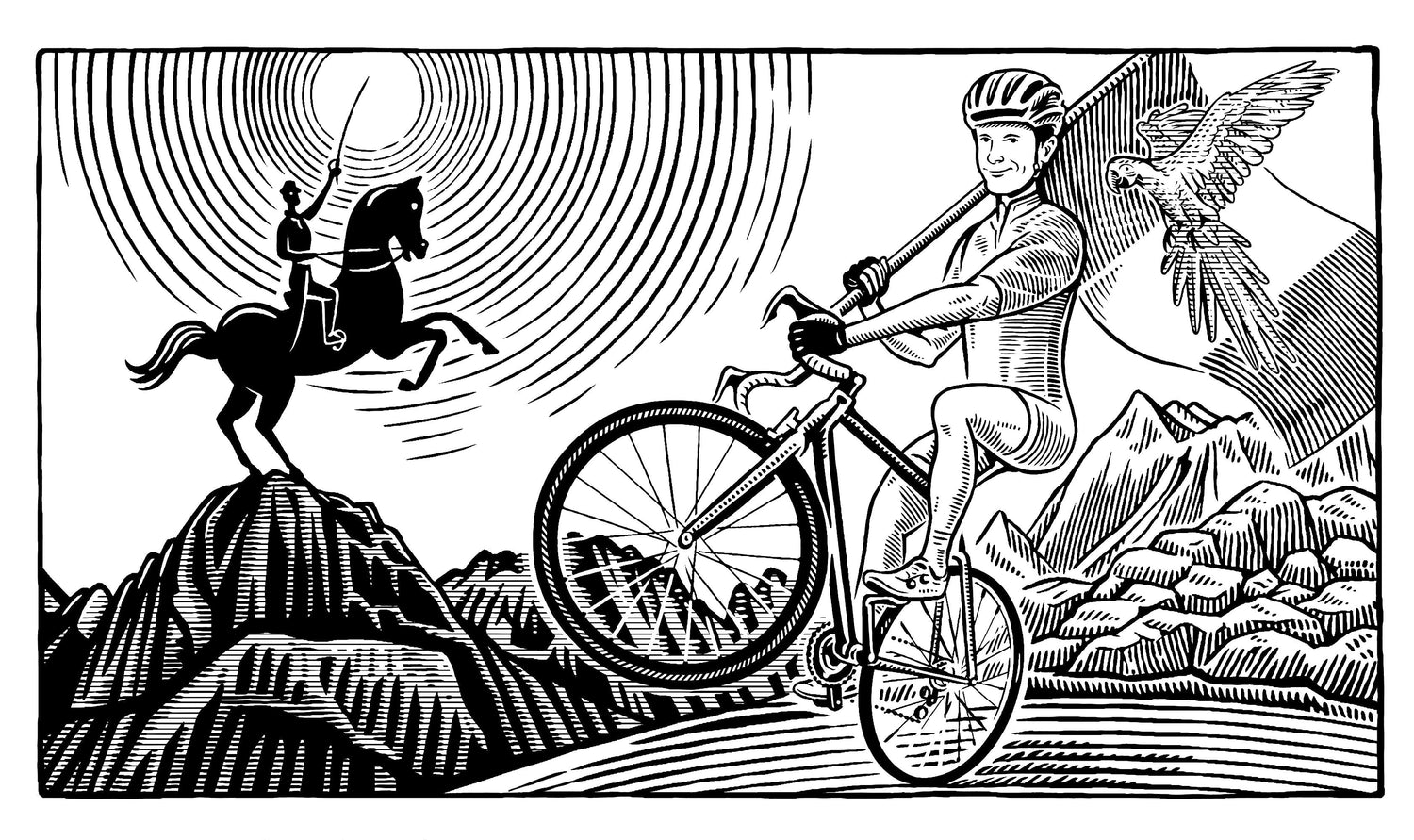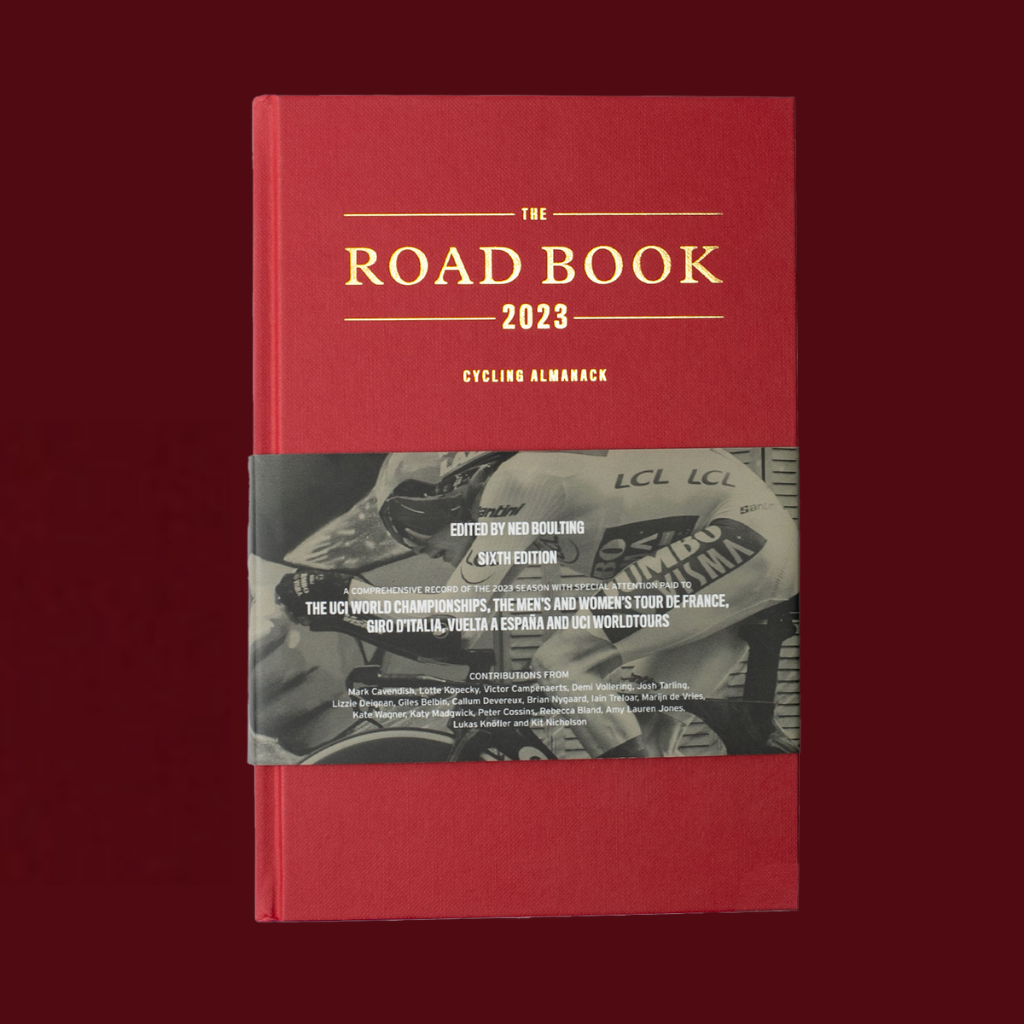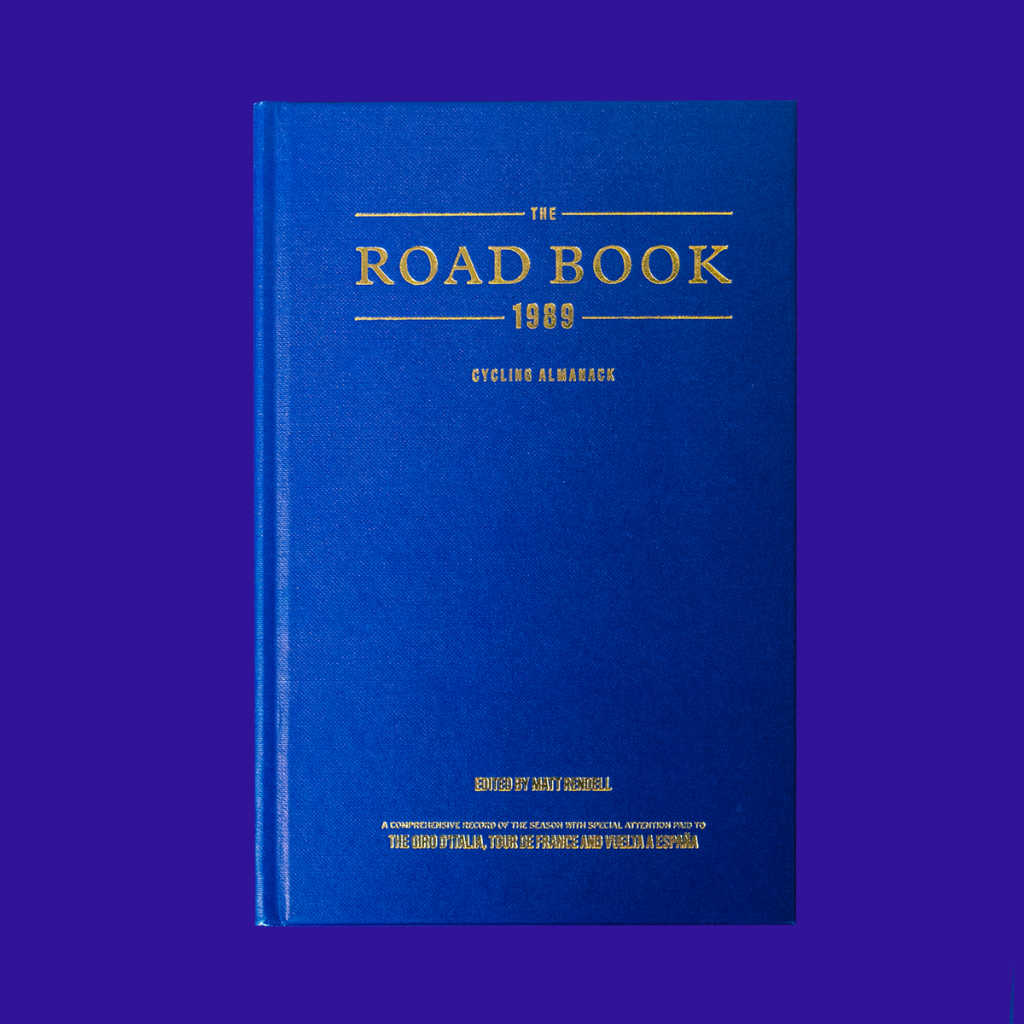This is an extract from The Road Book Cycling Almanack 2021. To read the full contribution from Kit Nicholson, purchase your first edition in our shop.
It started at the end. It always does: Annemiek van Vleuten’s 2016 Olympic dream ending on the side of the road, Greg LeMond’s chest full of buckshot, Froome’s Dauphiné recon crash, Marianne Vos’s hiatus forced by overtraining. It looked very much like it was all over.
In the case of Mark Cavendish, the whole world had given up on him, confident that he was done, that he couldn’t match the new generation of sprinters, that the best he could hope for was to share his wealth of experience with his successors and bow out with dignity.
‘That’s perhaps the last race of my career’ were the words he uttered through tears after Gent–Wevelgem in October 2020. He’d endured three seasons riddled with injury, illness and clinical depression, instability in team set-ups and a global pandemic. He’d got into the breakaway of the Belgian Classic – a rare occurrence for the sprinter – but with no contract for the coming season, his future seemed very much in doubt. Then about two months later, his old team Deceuninck-QuickStep signed him up, offering the Manxman dignity and an opportunity to close the circle.
Cycling is a sport that asks a lot from its participants. Injuries and time away from the peloton are to be expected, and if you dig deep enough, there’s a comeback story inside every jersey. Like underdog tales, the cult of the comeback is everywhere in sport, giving fans parables to live by. And after the 18 months Planet Earth has been through – bushfires, a pandemic and devastating floods – culture, sport and stories of renaissance, recovery and resurgence have become more important and more empowering than they’ve been in a long time.
2021 saw a number of unlikely as well as expected returns to form, and a few that were unfulfilled, but in a sport in which injury and time out of competition are inevitable, what really constitutes a comeback? By my reckoning, it starts with doubt (for example: will they ever walk again, never mind win races?). Then the individual has to return to the headlines, which might happen by winning or just by turning up, depending on the rider’s circumstances, age, nature of their injury, length of their lay-off, etc. Every comeback is different.
At the start of 2021, Mark Cavendish barely featured in any predictions for the season, but what we’ve seen from the Manx Missile is the definitive comeback: a successful athlete on their way out and then written off altogether, before a resurgent performance when it seemed impossible. Any return to form seemed so unlikely that his re-signing with the ‘winningest’ team in the sport raised a fair few eyebrows. Surely Cavendish wouldn’t get the chances he might once have expected, not with Sam Bennett on the same team? But that was perhaps the first glimmer of potential: no one expected anything of him any more, so it didn’t matter. The pressure was off.
And then he started winning.
It wasn’t immediate, but with a spring programme of smaller races, he was afforded the opportunity to be a bike racer in its purest form, with less support, bad weather and away from the prying eyes of the TV cameras. And in time that flourished into what the world – and Cav himself – thought might never happen again.



